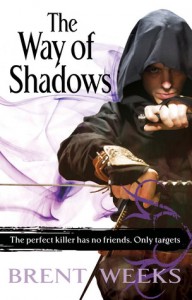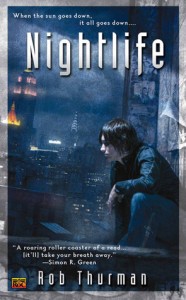The Red Necklace by Sally Gardner
 Life has been straightforward for 14-year-old Yann Margoza. As a gypsy, he has the ability to read minds and throw his voice, and he uses these talents to put on magic shows with his mentor, Têtu. But when they encounter the sinister Count Kalliovski, Yann is caught up in events beyond his control and understanding. Têtu is shot and Sido, a nobleman's daughter, helps Yann escape. He and Sido meet for only a moment, but a connection is formed that will cross borders and span years. Yann manages to leave France just as the revolution begins to take its bloody toll, but he can't forget the beautiful girl he left behind. Years later, he is still thinking about her, and when he finds out that Count Kalliovski is using Sido for some nefarious purpose, Yann decides he must return to France to save her. As both the revolution and the past threaten to swallow him, Yann perseveres, knowing that he is Sido's only hope for freedom.
Life has been straightforward for 14-year-old Yann Margoza. As a gypsy, he has the ability to read minds and throw his voice, and he uses these talents to put on magic shows with his mentor, Têtu. But when they encounter the sinister Count Kalliovski, Yann is caught up in events beyond his control and understanding. Têtu is shot and Sido, a nobleman's daughter, helps Yann escape. He and Sido meet for only a moment, but a connection is formed that will cross borders and span years. Yann manages to leave France just as the revolution begins to take its bloody toll, but he can't forget the beautiful girl he left behind. Years later, he is still thinking about her, and when he finds out that Count Kalliovski is using Sido for some nefarious purpose, Yann decides he must return to France to save her. As both the revolution and the past threaten to swallow him, Yann perseveres, knowing that he is Sido's only hope for freedom.
It was the cover of this book that caught my eye, but it was the premise that compelled me to take it home. I was intrigued and wanted to see how Gardner would weave magic into the horrors of the French Revolution and how her characters would navigate that bloody time in history.
The beginning was exciting with the introduction to Yann's character and the distant grumblings of revolution, and the end had a nice rising motion to it- I especially liked seeing Sido facing her own challenges. But what really kept me reading were several compelling mysteries that were introduced. I wanted to know more about Yann's origins, Sido's mother's death, and how Count Kalliovski fit into it all.
I thought this was a very interesting way to look at a certain period in history. The Red Necklace takes place at the beginning of the French Revolution and the facts are accurate, but this was definitely not a history book. The storming of the Bastille and the arrest of Louis XVI and Marie Antoinette were present, but we saw them as Sido saw them: distant events that only affected her superficially. The Revolution was an important piece of the story and a particularly striking setting, but it was not constantly in the spotlight. It was only brought to the reader's mind in small pieces as it brushed the lives of the characters and at the very end, where it played a significant part in the climax.
Several problems with this book kept me from really enjoying it. I had a really hard time getting into it. I wanted to like it, but it's written in a distant third person point of view that I found hard to relate to. For a long time, I didn't feel like I had any connection to the characters. And even though the beginning and end were exciting, the middle sagged. Years sped by between two paragraphs. Yann passed several milestones as a character, but they all happened offstage with just a bit of exposition to explain them. This made the book drag while I lost interest in both the characters and the story. However, I was surprised to find a lot that I related to in Sido's character. More on that here.
Also, Yann's fascination with Sido is what drives most of his decisions, yet I had no idea what he saw in her. They barely spoke a few words to each other through the entire book, but the reader is supposed to believe in this strange compelling love between them that smacks of Romeo and Juliet. Perhaps the fact that their attraction is described as 'strange' should explain away all doubt, but it just wasn't enough for me.
Overall, it seemed like a good book, but I was left feeling vaguely dissatisfied. I felt like it never lived up to its full potential. The Red Necklace is followed by The Silver Blade, but I'm not sure I'll bother reading the sequel.


